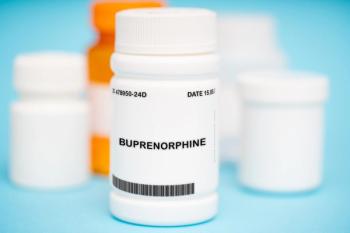
Rounding up of Rxs prompts lawsuit against drug chain
Florida sues Eckerd for overcharging patients
NEWSBREAKS
MAJOR STORIES FOR PHARMACISTS AT DEADLINE
Rounding up of Rxs prompts lawsuit against drug chain
The practice of "rounding up" prescription label quantitiesprinting Rx labels using the next whole number when fractional liquid quantities are dispensedgained widespread attention last month. A $100 million class action suit in Florida alleged that Eckerd customers who received 2.5-ml bottles of Xalatan were charged for 3 ml, a difference of $9.80 on each prescription dispensed, the suit claimed. The suit was filed in state court in Fort Lauderdale by Shirley Minsky, a Broward County resident.
Eckerd promptly denied the allegation, saying the $57.29 billed to customers for a 2.5-ml bottle of Xalatan was correct for that quantitynot $47.49, as the lawsuit claimed. "The actual price was $57.29," Eckerd CEO Wayne Harris told Wall Street analysts in a conference call. "How they got that other price, I don't know."
Harris did concede that Eckerd's computer system was unable to handle metric fractional quantities, so it rounded up liquid dosages to the next whole number on Rx labels, a software limitation the company said it was fixing. In the conference call with analysts, Harris said "many in the industry" rounded up dosages.
So, do other chains engage in this practice? CVS spokesman Mike DeAngelis said he was "aware of the story that ran in the Wall Street Journal and other publications regarding Eckerd. We do print whole numbers on the labels, but for the purposes of dispensing and billing, we do not." CVS was "certainly looking into" correcting the computer labeling weakness, he said. "But at this point, it's simply a labeling issue for us."
Both Walgreens and Rite Aid said their computer systems are capable of recording fractional quantities. "We do not have the same procedure Eckerd has," said Rite Aid spokeswoman Sarah Datz. Asked whether Walgreens rounds up on its labels, spokeswoman Carol Hively said, "Absolutely not. We have a system that allows for computing metric numbers and fractions, so we don't round up quantities ... at all."
Outside the leading chains, the rounding of metric dosages is fairly common. So said Tony Martins, president of The Right Price, a prescription-pricing consultant firm. "We see it literally every day, where the package size is 17.3 ml and the log shows they dispensed 18 ml." It speaks to the sophistication of the pharmacy software that's available, he said. "A lot of the pharmacy software out there today was written 20 years ago. It's been updated and punched out and modified and converted and everything else."
The decision to upgrade pharmacy software to reflect precise metric quantities is often sidetracked by other corporate priorities. "The computer has the ability to do those conversions. It's a mathematical solution," said Bill G. Felkey, associate professor of pharmacy care systems, Auburn University School of Pharmacy. He noted that implementing code changes requires programming time, and the fact that they had not been made "is to me potentially just because [they were] in competition with other changes that were deemed more important."
But, said Felkey, whatever is done with computer systems "to address the problems and issues of practice always creates new problems and issues. One of those is complacence. We say that if the computer gives us this answer, it must be right. Whenever we use technology as human beings, we have to continue to use critical judgment ... so that we don't let it do our thinking for us."
Steven Friedman, executive director of Pharmacy First, would agree, and, in the case of Eckerd pharmacists allegedly allowing the wrong quantity to appear on prescription labels, he said, "There's something called a pen. The pharmacist is ultimately responsible for what goes out the door. If the bottle is 2.5 ml and the label says 3 ml, just change it in the old-fashioned way."
If the pharmacists had instructions from corporate not to alter labels, Friedman said, "I hate to say it, but the pharmacist still has the final prerogative."
Bruce Buckley
The author is a pharmacy journalist in New York.
Bruce Buckley. Rounding up of Rxs prompts lawsuit against drug chain. Drug Topics 2002;5:21.
Newsletter
Pharmacy practice is always changing. Stay ahead of the curve with the Drug Topics newsletter and get the latest drug information, industry trends, and patient care tips.























